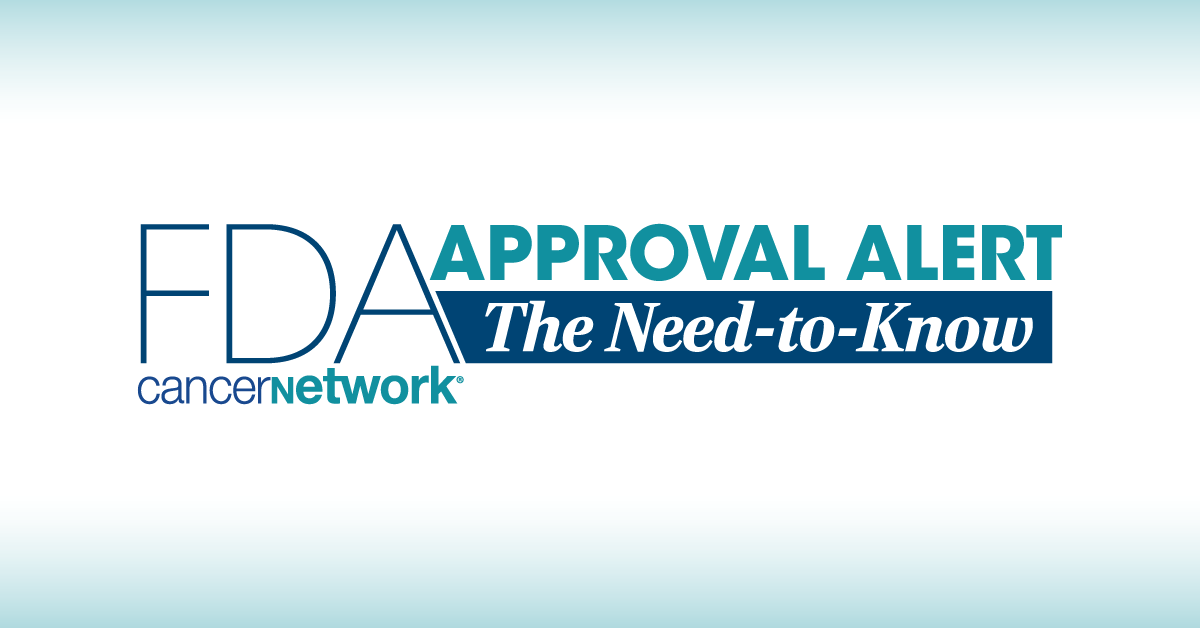Selpercatinib Earns Accelerated Approval in Pediatric RET+ Thyroid Cancer
Data from the phase 1/2 LIBRETTO-121 trial led to the approval of selpercatinib in pediatric RET-mutant thyroid cancer.
Data from the phase 1/2 LIBRETTO-121 study (NCT03899792) supported the accelerated approval of selpercatinib in this patient population.

Selpercatinib (Retevmo) has been granted accelerated approval by the FDA for pediatric patients 2 years or older, according to a press release from the agency.1
Patients are eligible for treatment if they have advanced metastatic medullary thyroid cancer with a RET mutation defined by an FDA-approved test and need systemic therapy; advanced or metastatic thyroid cancer with a RET gene fusion detected by an FDA-approved tested, need systemic therapy, and are radioactive iodine refractory; or have locally advanced or metastatic solid tumors with a RET gene fusion that is detected by an FDA-approved test after systemic therapy or have no satisfactory treatment options.
In a press release from the FDA, it was noted that this is the first agent approved for patients younger than 12 years with RET alterations.
The approval is based on results from the phase 1/2 LIBRETTO-121 trial (NCT03899792). Patients were given selpercatinib at 92 mg/m2 orally twice daily and continued until disease progression, unacceptable toxicity, or any other reason to stop treatment. The recommended dose for the patient population is based on body surface area for those 2 to less than 12 years old. For those older than 12, it is based on weight.
Overall, 25 patients between the ages of 2 to 20 who had locally advanced or metastatic RET-activated solid tumors that were non-responsive to current therapies with no curative alternative available were enrolled.
The overall response rate (ORR) via blinded independent central review was 48% (95% CI, 28%-69%), and the median duration of response was not reached (95% CI, not evaluable [NE] to NE). For pediatric patients and young adults with RET-mutant disease, the ORR was 43% (95% CI, 18%-71%), and for those with RET fusion-positive thyroid cancer, it was 60% (95% CI, 26%-88%).
Of note, adverse effects occurring in 25% or more of patients included musculoskeletal pain, diarrhea, headache, nausea, vomiting, and COVID-19 infection. The most common grade 3/4 laboratory abnormalities included decreased calcium, decreased hemoglobin, and decreased neutrophils.
In May 2020, selpercatinib was granted accelerated approval by the FDA for those with RET-mutant lung and thyroid cancer.2 Approval was based on data from the phase 1/2 LIBRETTO-001 trial (NCT03157128).
References
- FDA grants accelerated approval to selpercatinib for pediatric patients two years and older with RET-altered metastatic thyroid cancer or solid tumors. News release. FDA. May 29, 2024. Accessed May 29, 2024. https://shorturl.at/4Bduj
- FDA approves selpercatinib for lung and thyroid cancers with RET gene mutations or fusions. News release. May 8, 2020. Accessed May 29, 2024. https://shorturl.at/giten
Newsletter
Stay up to date on recent advances in the multidisciplinary approach to cancer.